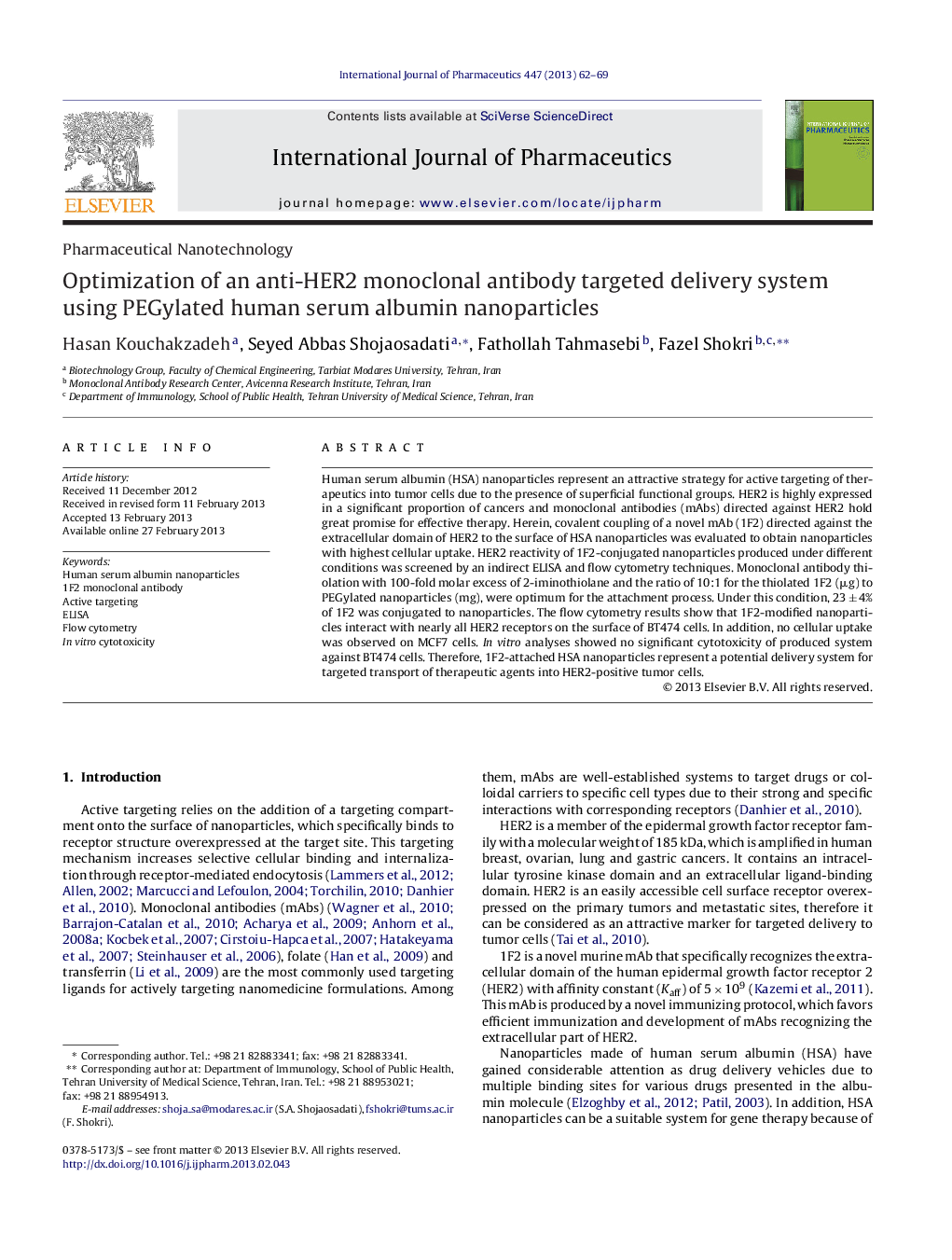| Article ID | Journal | Published Year | Pages | File Type |
|---|---|---|---|---|
| 5820229 | International Journal of Pharmaceutics | 2013 | 8 Pages |
Human serum albumin (HSA) nanoparticles represent an attractive strategy for active targeting of therapeutics into tumor cells due to the presence of superficial functional groups. HER2 is highly expressed in a significant proportion of cancers and monoclonal antibodies (mAbs) directed against HER2 hold great promise for effective therapy. Herein, covalent coupling of a novel mAb (1F2) directed against the extracellular domain of HER2 to the surface of HSA nanoparticles was evaluated to obtain nanoparticles with highest cellular uptake. HER2 reactivity of 1F2-conjugated nanoparticles produced under different conditions was screened by an indirect ELISA and flow cytometry techniques. Monoclonal antibody thiolation with 100-fold molar excess of 2-iminothiolane and the ratio of 10:1 for the thiolated 1F2 (μg) to PEGylated nanoparticles (mg), were optimum for the attachment process. Under this condition, 23 ± 4% of 1F2 was conjugated to nanoparticles. The flow cytometry results show that 1F2-modified nanoparticles interact with nearly all HER2 receptors on the surface of BT474 cells. In addition, no cellular uptake was observed on MCF7 cells. In vitro analyses showed no significant cytotoxicity of produced system against BT474 cells. Therefore, 1F2-attached HSA nanoparticles represent a potential delivery system for targeted transport of therapeutic agents into HER2-positive tumor cells.
Graphical abstractDownload high-res image (366KB)Download full-size image
